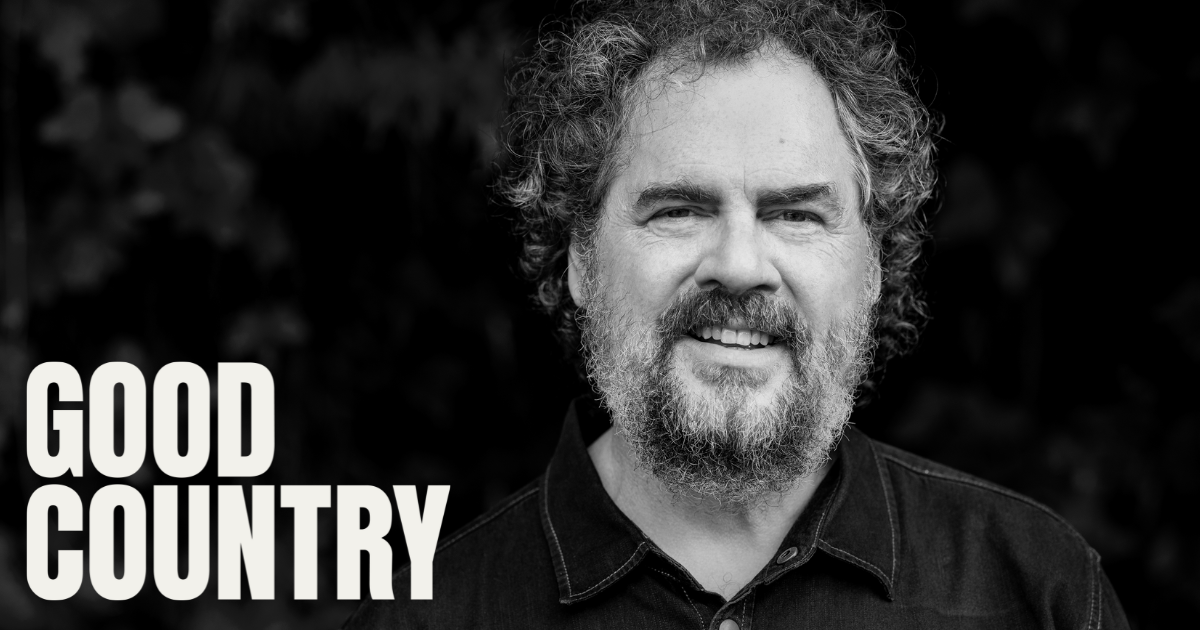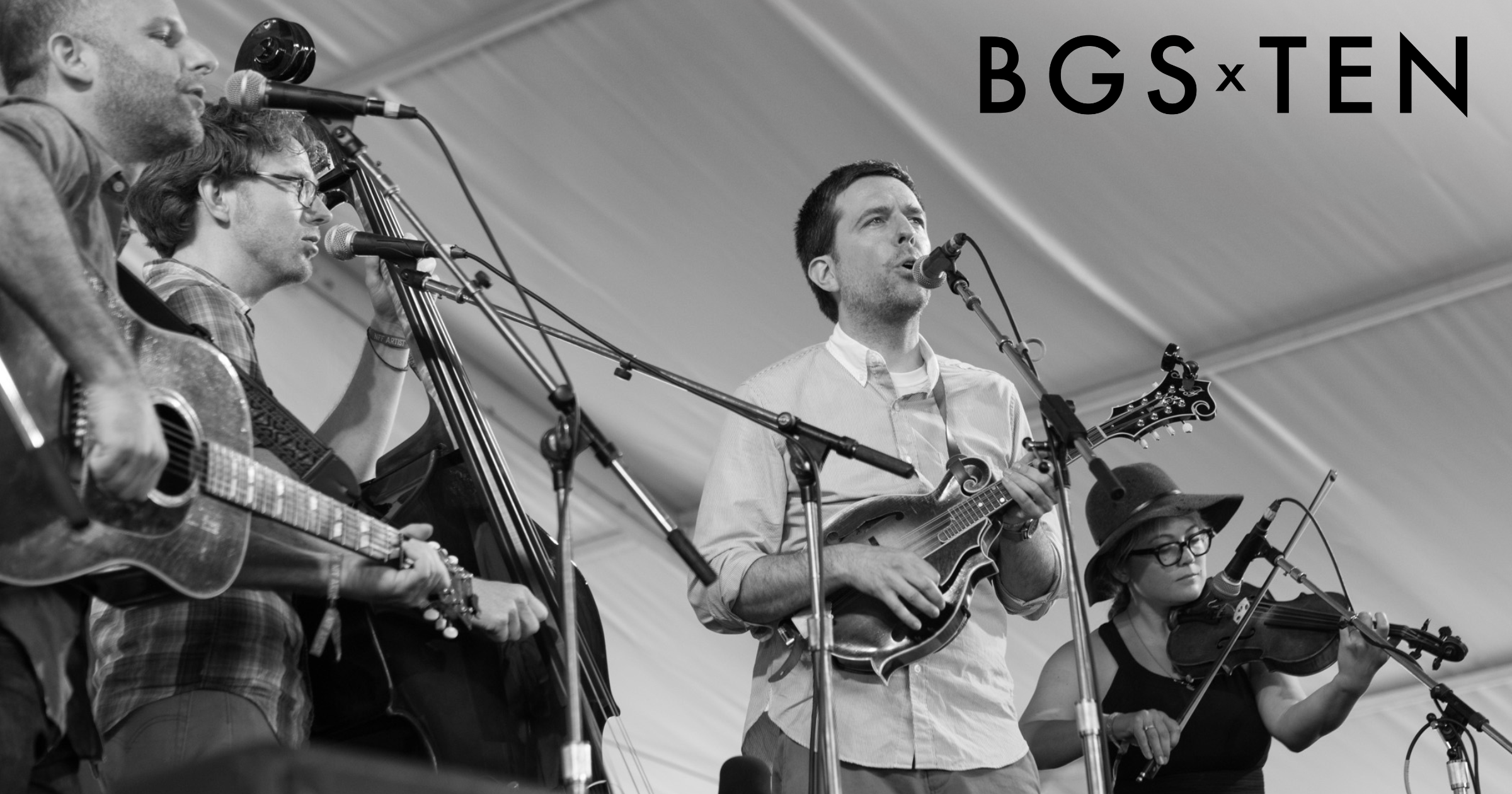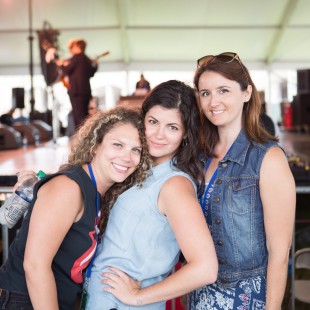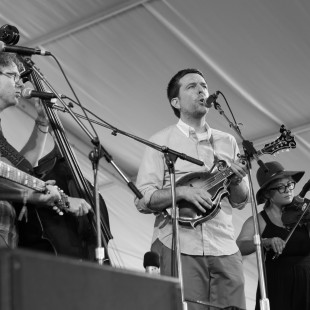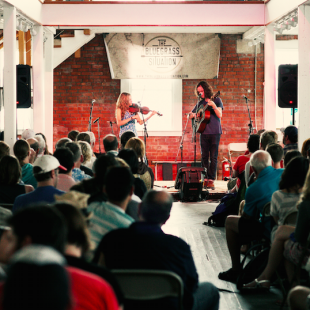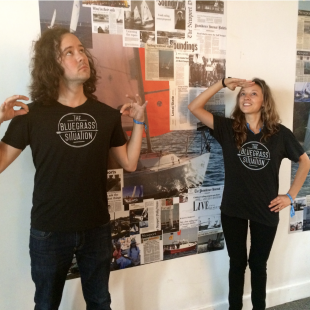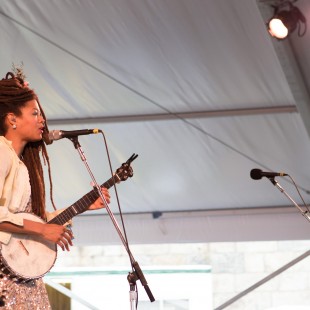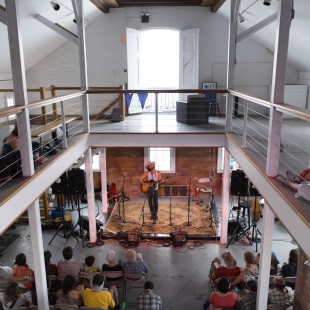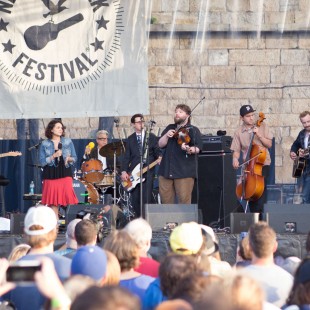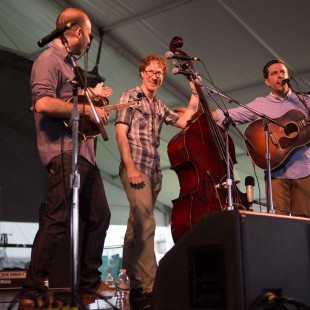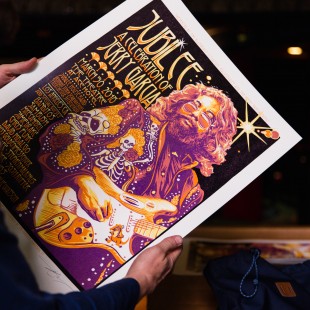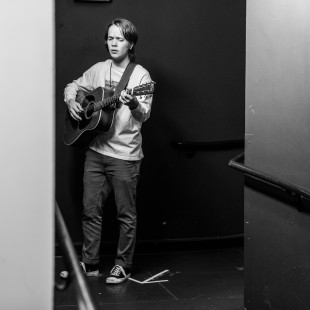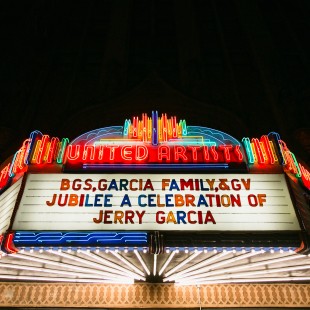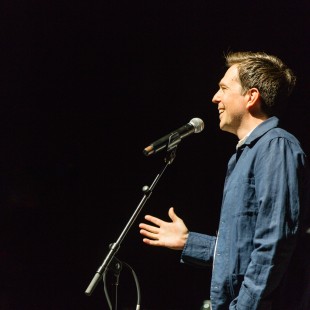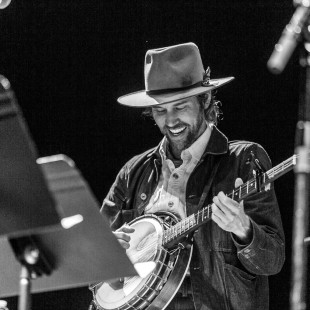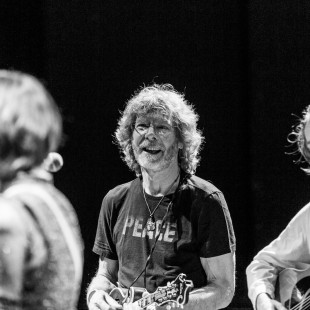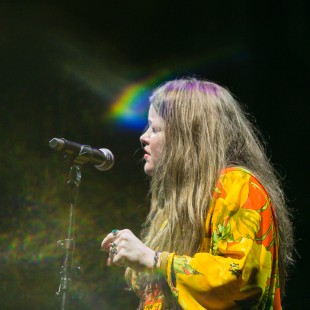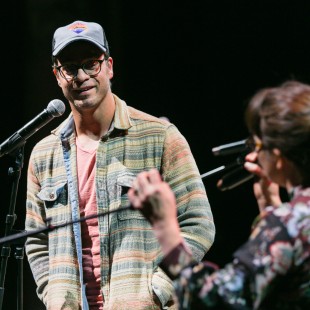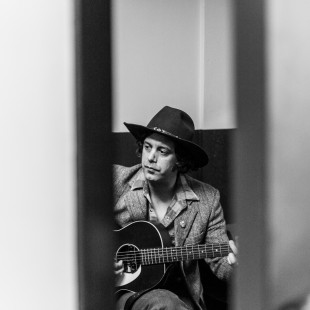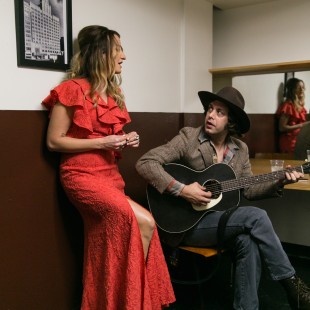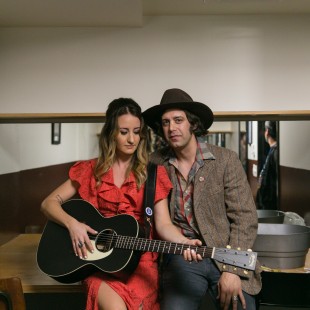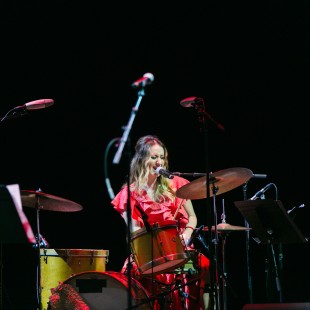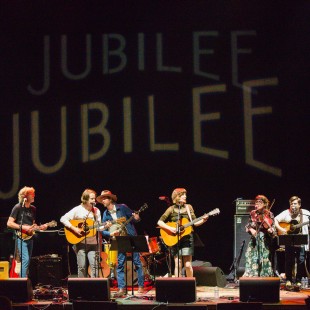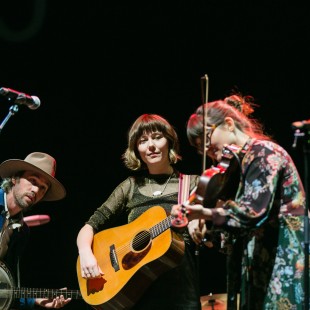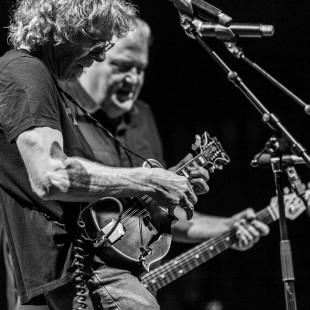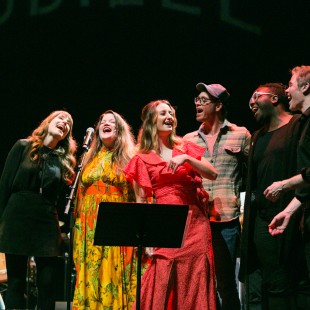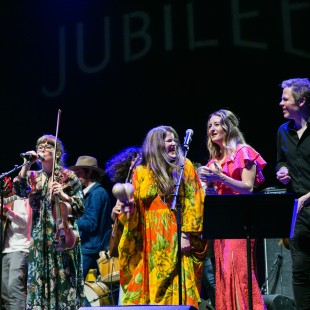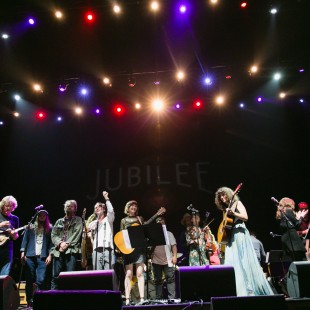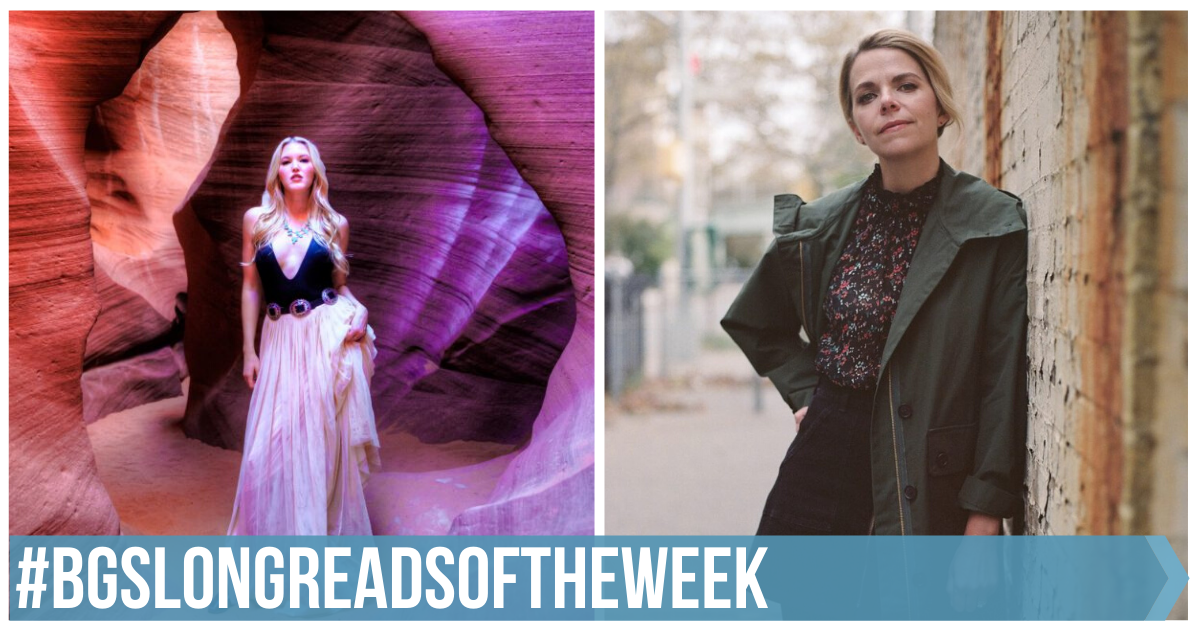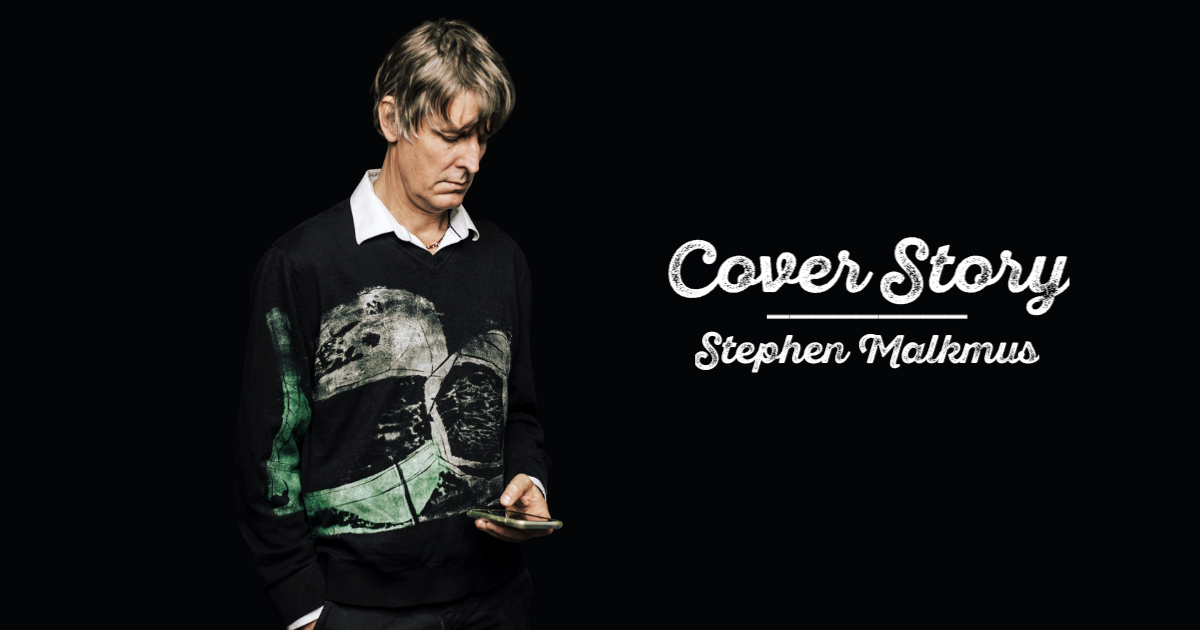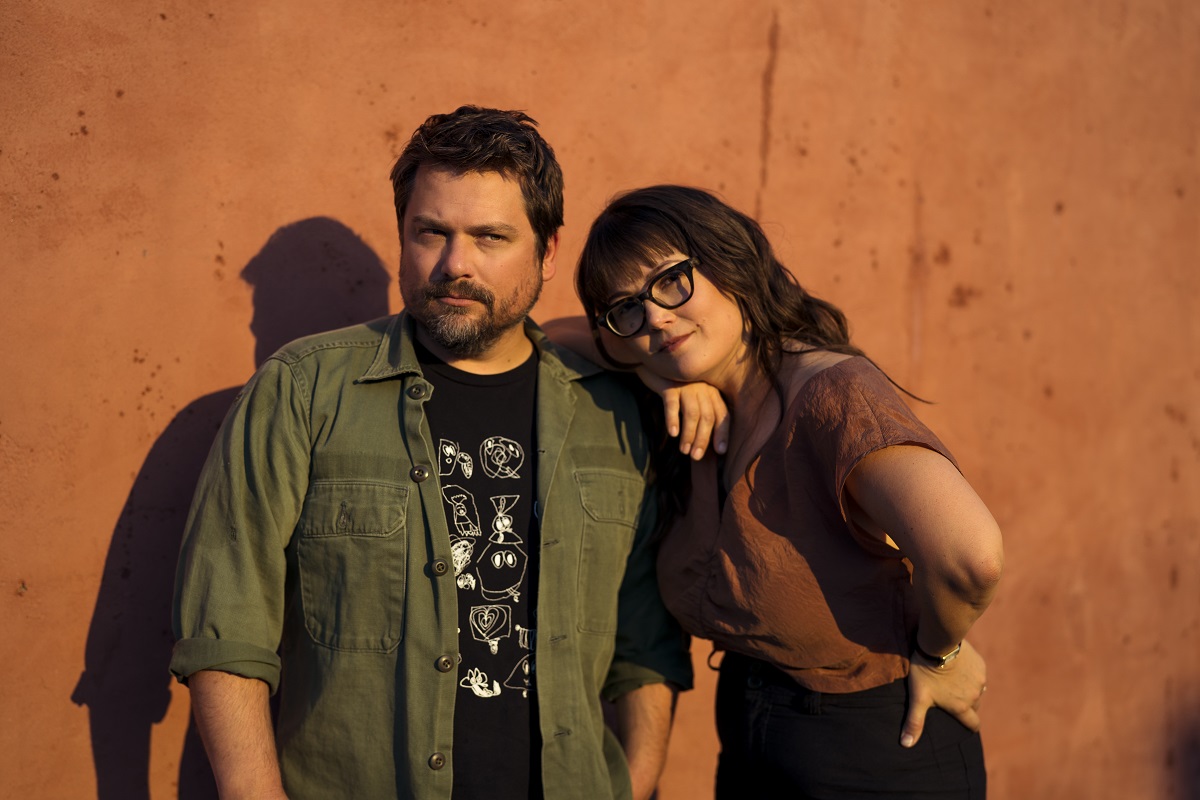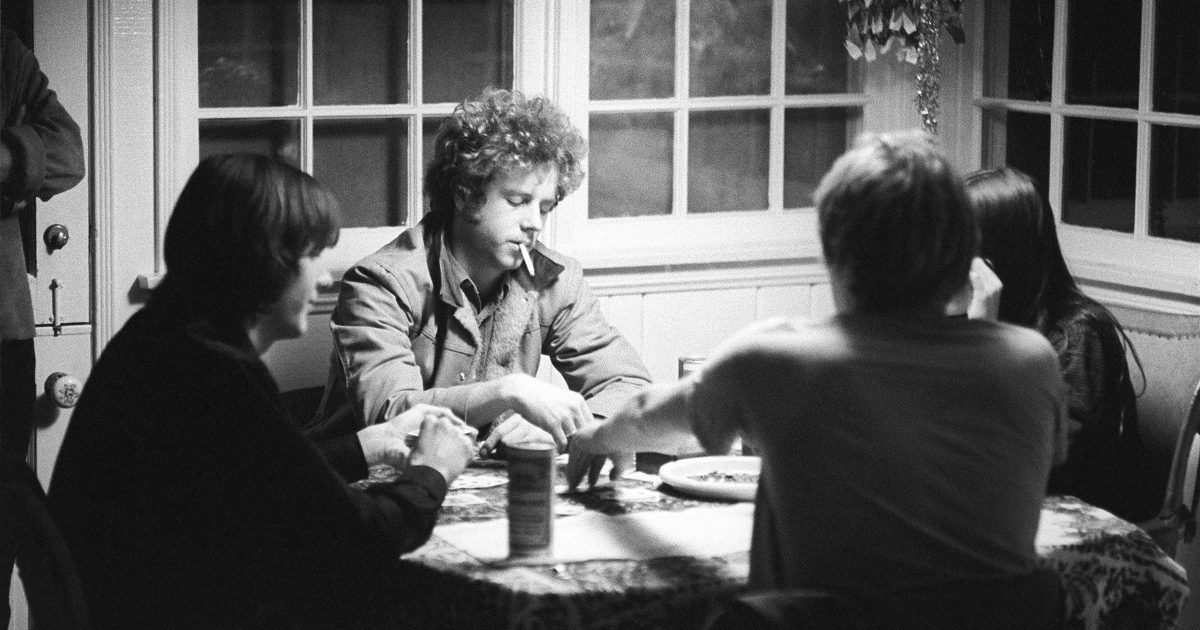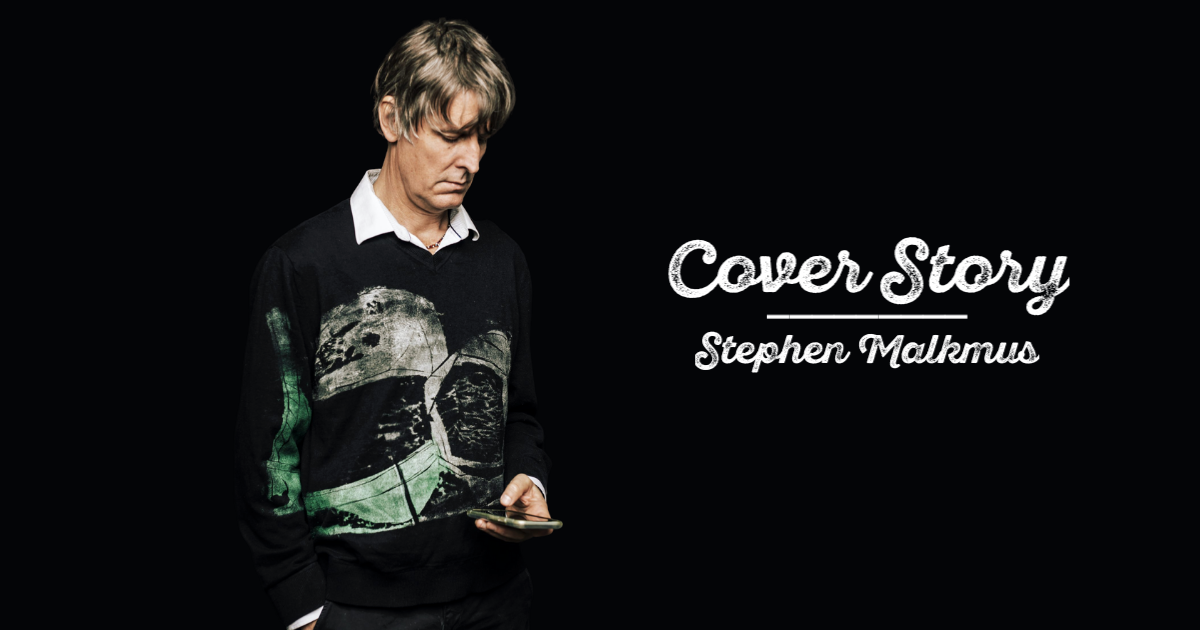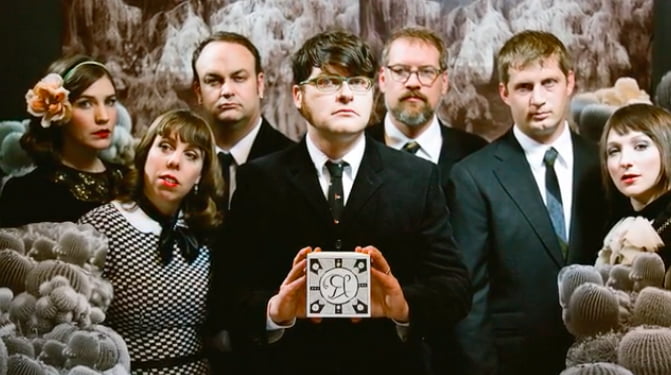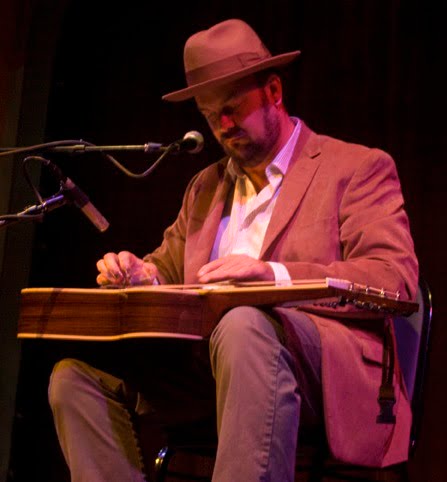Most people know Patterson Hood as the frontman (really one of two frontmen) for the long-running rock band Drive-By Truckers. Had they come up in the 1970s instead of the ‘90s, the Truckers would have been mentioned in the same breath as bands like Lynyrd Skynyrd and The Allman Brothers Band. Led by Hood and fellow singer-guitarist Mike Cooley, they play kickass Southern rock — but the caveat is that this is intelligent kickass Southern rock. And much of the band’s sensibility is informed by Hood’s unique youth. He grew up in Alabama, but was raised by liberal parents (his dad is legendary Muscle Shoals bassist David Hood). As Patterson says, “Dualities have always been an obsession of mine and to some extent [of] the band itself.”
Over the years, Hood has also kept a solo career going on the side. But his new album, Exploding Trees & Airplane Screams, is unique for a couple of reasons. For one thing, it’s his first solo record in 12 years. For another, it’s a somewhat different beast, musically, from most of his albums – both with and without the Truckers. There’s considerably less guitar-based rock and roll, and other instruments, such as piano and even woodwinds, have been pushed more to the fore.
This is still very much a Patterson Hood disc. You can’t miss his distinct, gravelly vocals. His storytelling – often stories of what it was like to come of age in 1970s Alabama – retains a sharp eye for detail and the aforementioned dualities. There’s a lot of pathos in Hood’s writing, but there’s always some humor as well. Exploding Trees features appearances from the Truckers’ Brad Morgan and Jay Gonzalez (on drums and keyboards, respectively), not to mention Lydia Loveless (on the heartbreaking “A Werewolf and a Girl”), Steve Berlin, and producer Chris Funk, among others.
Good Country recently had the pleasure of catching up with Patterson Hood.
You’ve been very prolific with the Truckers, but Exploding Trees & Airplane Screams is your first solo album in more than a decade. Why a solo album now?
Patterson Hood: That’s a great question. The reason, I guess, is that I’ve been super busy with the band. The Truckers have been in a really good place for over a decade now. So I wasn’t particularly eager to do a side project just for the sake of doin’ one.
But [with] every album, there’s always a couple of songs that somehow get lost in the shuffle. Particularly after the record comes out – they turn out to be great tracks on the record, but they never get played live. So they are kind of forgotten songs that I care a lot about. I kind of started a file some years back for those songs. It’s not that the band can’t play them; the band played the shit out of ‘em. [It’s] more just the way our shows are, the flow of the show, the rooms we play. You know, the emphasis live often gets put on a certain level of rock, for lack of a better way of puttin’ it. There are songs that might be a little more introverted. So I’ve had a stack of those songs that were sitting there.
And I also, about 10 years ago, became friends with [producer] Chris Funk. We would play together from time to time, usually in the Northwest, because we both live in Portland. We had this cool chemistry. So for a long time, we’ve been talking about making a record together. And during the lockdown – when I was stuck and couldn’t go anywhere or do anything – I spent a lotta time up in my music room. I wasn’t really able to write a lot during lockdown, because my brain was just not functioning very well. I was very depressed. It didn’t make for good songs. But I could go back and go through song fragments and hone in on things. I could really edit like crazy! So I spent a lotta time working on those songs – instead of thinking in terms of what I would do in a rock band format, what I would do in not a rock band format. You know, like “I could hear woodwinds on this song!” Things like that.
We cut it pretty quick. But I spent a long time working on it before we recorded it, you know? Including Funk telling me a few months before we went in, “I hope you’re practicing that piano, because I want you to play it on the record.” I’m like, “No, that wasn’t the plan. The plan was to have someone who can actually play the damn thing!” I’m thankful, because if he hadn’t kicked my ass, I probably wouldn’t have played piano, to be honest. It forced me out of my comfort zone, which I think was as much the point as anything for him. I think he wanted to keep me in a state of perpetual terror! [Laughs]
I had been wondering if that was you playing most of the piano, whether it was Jay Gonzalez or someone else?
I played a lot of it. I mean, I’m not playing all of it; Jay’s definitely playin’ on it. And I think Funk and I both play piano on one song. Funk played a lotta synthesizers. Jay’s playing some old vintage weirdo keyboards that have names that I can’t even remember. Phil Cook played that organ part on “The Forks of Cypress” too. But as far as the songs that seem to be built around a simple piano part – that tends to be me. That’s what I play: simple piano parts! [Laughs] I’m not Randy Newman.
Can I ask you about a few of the specific tracks? I understand that “Exploding Trees” was based on an actual event.
Yeah. It was kind of like a meteorological phenomenon, I guess. It was in my hometown in February of 1994. It was right before my 30th birthday [and] right before I moved to Athens, Georgia. The weather had been warm and it rained a lot for a couple of weeks. It just rained and rained, you know? Borderline flood conditions. There’s a lot of pine trees, particularly in my home area. And they all got completely waterlogged by all the rain and with the warm temperatures.
Then there was this sudden freeze; the temperature dropped like 40 degrees in a couple of hours. And all the water in those trees froze. Particularly those pine trees – I guess they splinter easier anyway. The trees basically exploded all over town, kind of at the same time. Thousands of fucking trees! I mean, flattening cars, buildings, people. It was really awful. … And I had been out of town. I had ironically visited Athens a couple of nights before for the very first time – which directly led to me living there shortly after. I was driving back home as it happened; I basically drove right into the middle of it. I was trying to get to my grandmother’s house to check on her. I got to the house and there were, like, pieces of trees that had gone through the roof. And I couldn’t find her anywhere. [It turns out] she was fine. She was at a neighbor’s house.
I love the line “beauty queens in hospital gowns.”
Right. Well, one of the worst injuries of this storm was a girl I knew. I worked at a restaurant with her. She had just won Miss UNA, the beauty pageant, and was like two weeks away from going to compete for Miss Alabama. Lovely, lovely young woman. Very sweet – super Christian. And an oak tree fell on her car, with her in it. And it knocked her head down into her body cavity. It completely pulverized her neck and back – but she lived! She’s a quadriplegic [now, but] that accident led to [that line].
Oh God. That’s awful.
It feels like there’s a theme on a few songs of reckoning – coming to terms with past events, maybe.
Sure. Or trying to make sense of things. “Miss Coldiron’s Oldsmobile” – I was too young when that was happening to really wrap my head around what all of that meant. But as an adult, you can go, “Okay. She was being gaslighted, you know?” Every time she would ask for money, she’d get reminded of the mental hospital she had spent some time in. Things like that. It was pretty fucking insidious.
“The Van Pelt Parties” – you know, that was some of my first experiences with drinking and how adults partied. I was a little kid, sneaking booze from the punchbowl. I was the only kid at the party and we would go every year. And the older I got, the drunker I got. And the grownups were too drunk to notice! [Laughs]
Was Van Pelt a part of Alabama?
They were a family. He was a college professor, she was a schoolteacher. Their daughter was a painter who had been my babysitter. And my parents were right in the middle of their ages – kind of ended up becoming friends with all of them, with the daughter and the parents. So they were a big presence in my life growing up. You know, I loved ‘em. Their daughter, who’d been my babysitter, taught me a lot of cool stuff. She turned me on to some cool music. I actually have a painting she made after tripping on acid at a Doobie Brothers concert!
Maybe it was because we were young, but I think the ’70s had a much cooler vibe than the present.
Well, about anything’s better than [now]. I hate saying this so bad because I’m not prone to romanticizing the past; I’ve always rebelled against glory days. But right now sucks! The level of fucking misinformation and just the insanity right now is so insidious. It’s hard right now not to feel a certain amount of nostalgia for any time in the past.
You and Mike Cooley have been playing together for almost 40 years or more. And other members of the Truckers have come and gone. But the drummer, Brad Morgan, has been with you guys forever and we don’t hear a lot about him. Tell me a little about Brad and what he brings to the band.
The band wouldn’t exist without Brad. Brad was the glue that kept all this crazy shit together all these years. You know, he’s that guy that’s really even-keeled. And he brought that to the table at times when the band was far too tumultuous and emotional for our own good. We call him Easy B. There’s a golden rule in the band and that’s “Don’t piss off Easy B!” Because if you’re fucking up enough to where Easy B gets mad at you, you are fucking up! And you don’t want the phone call from Easy B! He doesn’t get mad often so if he’s mad, there’s a good reason for it and you better take heed. He’s also a colossal drummer. He so often takes such a subtle approach to things that people don’t realize what a bad-ass drummer he is.
I know you have some solo dates lined up. What can people look forward to when you’re touring with this album? I assume it’ll be a little different than a Truckers show?
Yeah! Very different. But at the same time, it’s the same universe. [Lydia Loveless] is in the band that’s touring this record. She’s gonna open the show and she’s gonna play bass and sing harmonies in my band.
I think anyone who’s into the Truckers – if they can tolerate my voice, they’ll probably like this too. [Laughs] If you’re there for the big frontal assault and guitars and sweat and spit that comes with a Truckers show, it’s very different. Although I’m not ruling out those things happening, too. But it’s a quieter show. It’s gonna be built around these songs, with some other stuff that stylistically or thematically works with this. And it’s cool.
Photo Credit: Jason Thrasher
